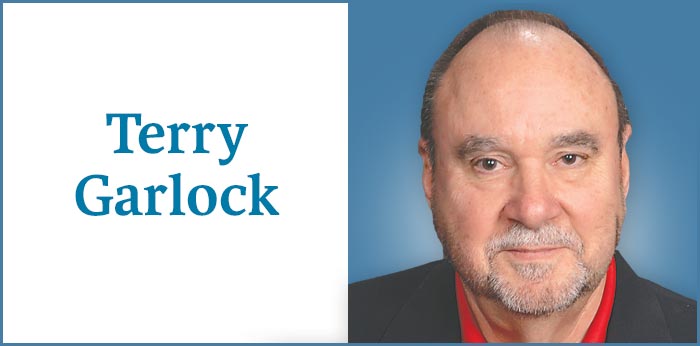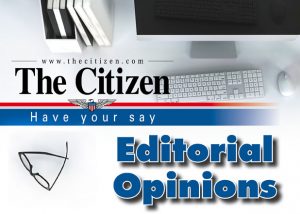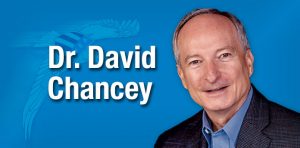I worry that the U.S. has granted control of our situation to medical specialists who are not competent to balance economic consequences against their judgment when we can “safely” emerge from our hiding.
I’ll tell you what I see looming on the horizon, but I admit I’m guessing. And it isn’t pretty.
I give President Trump high marks for quick, decisive action when faced with a sudden national threat. I also give thumbs up on the huge stimulus borrowing to keep individuals and small businesses afloat in the short term, despite the debt issues, and the lightening speed of stimulus implementation.
Congress deserves an annual horse-whipping for their undisciplined over-spending and borrowing that piles on more debt – every year. We should instead keep our national debt manageable because we never know when an emergency will REQUIRE extraordinary borrowing to get through hard times, like right now.
I’ll begin my scenario by sharing advice I give my children: “Never trust the official version of anything!” because by the time any organization approves language to publish, butts have been covered by squeezing out embarrassing shreds of truth.
That is how I view the current 6 o’clock Follies, otherwise known as the televised White House briefings in which Trump foolishly stands before reporters and cameras to transform himself into a target for an hour every day.
If he asked my advice I would tell him to let his appointed experts deliver the updates and preserve his presidential imperial status by appearing for no more than 5 minutes once or twice a week, especially since a President’s words matter quite a lot and precise care with words is … not his strong suit.
The initial emergency warranted urgent updates, advisories to the public and explanations how the stimulus would work to keep us out of the economic abyss for a while. That quickly devolved into squabbles over next steps, and now platitudes on how great we are and mechanics of getting the country back to work.
I don’t swallow the White House platitudes, which look to me like thin cover for our leaders covertly awakening to the economic catastrophe the shutdown has already created and knowing economic misery is coming soon, platitudes that distract from the reality that Covid-19 still lurks waiting for us to come out of hiding.
I DO agree that getting the economy operating ASAP should be the top priority to interrupt the national economic suicide in process. But we should not delude ourselves that we are now safe.
Think about this. Your family and mine has been isolated from all others in our millions of little shelter pockets for a month. The sickness from which we are hiding has, therefore, not yet swept through the herd, and we should expect that sweep and its casualties when we do emerge. If we remain sheltered for safety much longer, economic collapse is assured and we cannot let that happen.
I would argue the economic damage already done will be felt for a very long time. The hardest hit will be those at the bottom, those least able to care for themselves, and there will be many others.
Trump and Congress have borrowed a couple TRILLION to help keep small businesses afloat, send a cash payment to taxpayers and to enhance meager state unemployment payments to furloughed workers, a short-term necessity and quickly executed. Well done.
The Federal Reserve is pumping TRILLIONS more into other business subsidies. I am confident the big boys in business will be best taken care of because they have the talent and resources to quickly game the system of loans, subsidies and grants. The least needy always seem to be first hogs at the trough.
This colossal borrowing will eventually become inflationary of course, but our economy is at stake and action was and remains vital. The stimulus will help millions stay afloat but even though huge, the borrowing won’t be enough, and the Fed can’t rescue everyone. I hope I’m wrong but my guess is economic casualties will be large numbers. Here are some examples, so far only in my mind.
Behaviors have changed. When we are told to end our shelter-in-place, not all businesses will restart at once and the population won’t snap back to old practices. Some may rush out into spring to shed their cabin fever, but many people will emerge from sheltering slowly, cautiously, keeping gloves and masks in use at gathering places for strangers like grocery stores.
We will want more social distance in restaurants so there will be room for fewer patrons, the restaurants will make less money and employ fewer staff. Packed venues like concerts or sporting events are likely to be thin at first, probably forever less dense than just a few months ago. I will be reluctant to resume the custom of shaking hands; how about you?
The engine of human interaction won’t instantly jump to former levels. Economists use the term “velocity of money” to measure the speed in which transactions move from two parties to the next and the next, etc., a key measure of the vitality of our economy. I fear and expect the velocity will wake up at a low level and increase slowly, not returning to prior highs for some time.
Ask yourself, how long before we return to the same huge numbers of airline bookings, long check-in lines at airports and packed airplanes for domestic and international travel, meaning we will once again rent cars at our destination, book hotel rooms, eat in restaurants, buy in vacation spot shops and purchase destination leisure services?
Airlines, cruise ship lines and businesses hope and pray for the travel and vacation industry to return to the former flood of movement and buying, a monstrous industry in Italy and key spots in the U.S. and Europe. How long will you watch and wait to see what happens before your comfort level is ready to book a vacation trip?
Part of the travel industry may be permanently lost. Traditional business meetings have been introduced to necessity, aka the mother of invention, discovering that new technology in online meeting software is far more effective than the older more clumsy versions. The savings in time and travel expense are enormous. My guess is a shift in meeting culture to online instead of travel has occurred in some companies and will spread to others, a shift that won’t be reversed, thereby eliminating an unknown number of travel industry jobs.
Domestically, there are always a number of small businesses at the margin barely surviving, hanging on by financial fingernails. How many of those are already dead, never to open again, jobs they provided gone forever? Some are not so small. Under increasing pressure in a changing world, some national chains will likely throw in the towel, their brick-and-mortar retail model finally defeated by the kind of convenient shopping I do relentlessly on Amazon.
Businesses taking advantage of the stimulus forgivable loans designed to keep people employed find they are required to use 75% of the loans to fund payroll. With little or no revenue they can’t pay rent, utilities, insurance and other expenses, and some will surely fail despite the stimulus help, employee jobs gone.
As businesses begin to reopen, they won’t instantly return to their pre-pandemic normal. Channels of distribution have to fill their pipeline. Public activity will likely be subdued for a while. Since consumer confidence and transactions are at the root of all economic activity, I expect businesses will start slowly and cautiously as managers call back to work furloughed employees only as the workload requires. Their other employees will wait to be called back, still reliant on unemployment support which is already straining state budgets and emptying the allocated portion of federal stimulus funds.
In every recession when businesses are squeezed to downsize, bosses say a sad goodbye to some good employees and others who may be deadwood but the boss never had the guts to terminate them until forced by bad times. And now the squeeze of bad times has arrived. Businesses will, by the crush of necessity, improve efficiency by finding out if they can get the job done with 50 instead of the 60 workers they previously carried.
For many businesses, the slow start will be a wake-up pause to ponder whether there is a better way to reduce costs and deliver services. What about automation, robotics or vendors, suppliers and service providers offering a better mousetrap?
That means old buying relationships won’t necessarily carry over, will be re-assessed so that other businesses in the supply chain may face unexpected pressures of new competition to stay alive, and the employment squeeze rolls downhill.
Some businesses and services may find their customer base is weakened or even gone. Movie theaters may remain empty for some time, at least until seats are moved farther apart so the cough or sneeze behind you doesn’t splatter your neck. How long will live crowds attend packed concerts and sports events when action and details can be captured so much better in our age of excellent video, sound and superb large screens, available to an unlimited audience, whether free or pay-per-view? For goods friendly to online ordering, the days of brick-and-mortar stores and staff are numbered.
For all these and other reasons, in this unplanned season of pressure and re-thinking, some number of workers preparing to return to work will be horrified to see their job disappear.
Furloughed or laid-off workers paid in cash off-the-books have not received federal stimulus or state unemployment support and many are likely already desperate. They are under the radar of payroll, federal and state taxes, Social Security or Medicare contributions, against the law of course but done everywhere in restaurant kitchens, some servers, domestic workers, day laborers, some construction jobs, landscape workers and many others. I doubt their guilty employers are filing reports for them to receive state or federal benefits, and my guess is these off-the-books employees would not be entitled to state unemployment or federal stimulus aid anyway whether citizens or illegals.
Don’t get your knickers in an uproar, I am absolutely not in favor of benefits going to illegals. Nevertheless, as Jesus might observe, we let the least among us fall through the cracks.
With every significant change comes new opportunities. Manufacturers of medical personal protection equipment (PPE), antiseptic cleaners, hand sanitizers, toilet paper for Pete’s sake, new “sneeze barriers” between checkout lines and cashiers, credit card pads designed for outdoor exposure at drive-throughs, more effective breather masks with virus filters for places like movie theaters, improved pre-packaged family meals in grocery stores, new zero-contact home delivery services, expansion of online sales and distribution operations like Amazon and even Walmart, and many other innovations will likely be born out of changed consumer behaviors and attitudes.
Maybe grocery stores will make aisles one-way traffic to accommodate social distance. New methods of zero-contact handling and packaging food will likely emerge. New business ideas that succeed will create new jobs, but not fast enough to rescue the newly jobless, which are not only former employees, but owners who lost their businesses after years of toil and investment.
Now, if my gloom has not lost you, I have two bottom lines.
First, despite millions of businesses and workers temporarily kept afloat by stimulus aid, the numbers of people left out at the margin will be large, business failures will be many and the number of jobs never coming back will be huge.
An unemployment rate around 5% is regarded by economists as full employment since that “frictional unemployment” rate persists as people move from one job to another or are just entering the workforce. A lower unemployment rate would be inflationary as employers compete for employees with higher wages. Recent statistics have been in this low full employment range.
Now imagine an unemployment rate of 20-30%. Imagine state unemployment payments drying up because so many are unemployed, because taxable activity has been so low for so many weeks and that states are running dangerously low on money to pay unemployment benefits. And in most states unemployment has a 26-week limit.
With massive numbers unemployed, competition for available jobs will be fierce.
Social safety net programs will be strained and maybe broken.
How many will become homeless?
How many will be reluctant to seek medical care for themselves or their children with little income and without the health insurance that was lost with their job?
With so many out of work and spending precious little other than necessities, how will the lower velocity of money suppress the economy and for how long?
With so many of the permanently poor plus formerly stable families in desperate need and social services worn thin, how will that desperation translate to an escalating crime rate? What extreme things will a parent do when they can no longer properly feed, clothe and provide for their kids? No matter how sympathetic you are, how much more vigilant must you become for the safety of your family?
Even my gloomy scenario understates the complexity of economic layers and interconnections that make the good life we take for granted. And we are tearing it apart merely by staying home.
Now for my second bottom line.
While jobless misery spreads in a recession or worse, what do you think will happen when the Covid-19 virus meets the newly un-sheltered herd, the herd with empty hopes of a vaccine to protect them? We cannot shelter for a year or two until a vaccine is developed, manufactured, distributed and we all get our shot. So whenever we emerge from hiding, the virus will have a virgin herd to sweep through and claim its victims.
The Hobson’s choice we face right now, it seems, is either emerge and get the country back to work immediately while we apply precautions we have learned, knowing it is already too late to prevent serious job losses, knowing Covid-19 victims are likely, or we could shelter longer while knowing our economic system will collapse and may never recover.
The clear choice to me is come out of our shelter and restart business immediately to contain further economic damage, accepting that Covid-19 will cause casualties. Life comes with risks. This is one we cannot avoid, just my opinion.
If you differ with my view by your belief the resilient U.S. economy will quickly rebound and we need not take risks with the virus, when the dust settles I will be pleased to hear you declare “I told you so!” I would be so delighted to be wrong.
[Terry Garlock lives in Peachtree City, Ga. His email is [email protected].]












Leave a Comment
You must be logged in to post a comment.